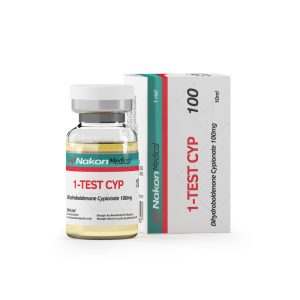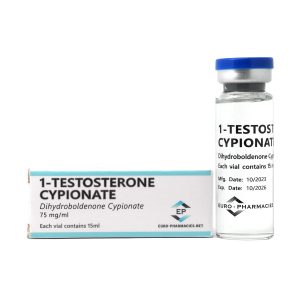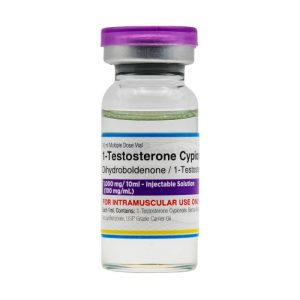Instructions for use Somatropin
What is Somatropin?
Somatropin is a form of HGH manufactured from recombinant DNA technology. It has a similar chemical composition to the natural human growth hormone found in the body. This drug is prescribed to treat a variety of conditions related to growth in both children and adults. It is also sometimes used to enhance athletic performance or as an anti-aging therapy.
What Conditions is Somatropin Used For?
Somatropin is prescribed to treat a variety of conditions, including stunted growth in children, chronic kidney disease, wasting syndromes (such as HIV/AIDS-related cachexia), and Turner’s Syndrome.
How to Use Somatropin
When using Somatropin, it is important to follow the instructions on the prescription label and adhere to any guidance or direction provided by your doctor or pharmacist. It is recommended that Somatropin be taken subcutaneously (under the skin). Here are some general instructions for use:
- Wash and dry your hands before preparing the injection.
- Be sure to discard any vials that have punctures, cracks, or discoloration.
- Clean and prepare the injection area.
- Draw the prescribed dose into the syringe.
- Administer the injection.
- Record the dose and time in a chart or log book.
Side Effects of Somatropin
Somatropin is a synthetic version of human growth hormone (HGH) used to treat a variety of medical conditions, including dwarfism, HIV or AIDS, and certain types of cancer. It can also be used for bodybuilding and anti-aging purposes. While this drug can provide a number of benefits by helping to increase lean muscle mass and reduce body fat, there are potential side effects to consider.
Common Side Effects
When taken as prescribed, somatropin is generally safe. However, like any drug, it can still potentially cause side effects. Here are some of the more common side effects reported with somatropin:
- Joint and muscle pain
- Edema (swelling)
- Numbness or tingling sensations
- Headaches
- Dizziness
- Anxiety
- Difficulty sleeping
Most of these side effects are not serious and should pass within a few days. However, if they become bothersome or last for an extended period of time, contact your doctor for advice.
Less Common Side Effects
In addition to the more common side effects, somatropin can also cause less common side effects. These side effects are not as common but should still be taken seriously as they can indicate a serious medical issue. Less common side effects are:
- Redness or irritation at the injection site
- Lethargy
- Nausea or vomiting
- Skin rashes or hives
- Blurred vision
- Rapid or irregular heart rate
- Shortness of breath
- Severe headaches
If you experience any of these side effects, contact your doctor immediately as they could indicate a serious medical condition.
Dosage & Risks
It is important to speak with your doctor about how to properly take somatropin. Dosage depends on your individual condition and will vary from person to person. It is also important to recognize that there are potential risks associated with taking this drug, such as the potential for increased blood sugar levels and high cholesterol. There is also a risk of hypothyroidism (low thyroid levels), which can cause fatigue, depression, and weight gain. Because of these risks, it is important to carefully follow instructions from your doctor when taking somatropin.
Conclusion
Somatropin is a synthetic form of human growth hormone used to treat a variety of medical conditions and enhance athletic performance. It can provide a number of benefits, but it is also important to recognize and be aware of the potential side effects. Common side effects can include joint and muscle pain, edema, numbness or tingling sensations, headaches, dizziness, anxiety, and difficulty sleeping. Less common side effects, such as redness or irritation at the injection site, lethargy, nausea or vomiting, skin rashes or hives, blurred vision, rapid or irregular heart rate, shortness of breath, and severe headaches, may indicate a more serious medical issue and necessitate medical attention. Before taking somatropin, it is important to discuss dosage and risks with your doctor.
Caution: Serious Health Risk
Somatropin should not be taken if you have a history of cancer, diabetes, or any condition that causes muscle wasting. Additionally, the use of Somatropin without the supervision of a qualified medical professional can cause serious long-term health effects, including blindness, nerve damage, and even death.
Summary
When used correctly, under proper medical supervision, Somatropin can be an effective tool for helping to treat certain medical conditions. It is important to be aware of potential side effects and take necessary precautions to ensure safe use. In order to minimize potential risks, it is advised to only use Somatropin under the direction of a qualified medical professional.
Showing 1–16 of 5886 results
-

1 Testosterone Cypionate Euro Pharmacies
33,00 € Add to cart -

1- Test C / Dhb Mactropin
45,00 € Add to cart -

1-Test Cyp 100 Dragon Pharma
109,00 € Add to cart -

1-Test Cyp 100 Nakon Medical
94,00 € Add to cart -

1-Testosterone Cypionate (DHB) 10ml Euro-Pharmacies
70,00 € Add to cart -

1-Testosterone Cypionate DHB 75mg/ml, 15ml/vial USA Euro-Pharmacies
114,00 € Add to cart -

1-Testosterone Cypionate DHB 75mg/ml, 15ml/vial USA Pharmaceutical
114,00 € Add to cart -

1-Testosterone Cypionate Euro-Pharmacies
126,00 € Add to cart -

1-Testosterone Cypionate Pharmaqo
103,00 € Add to cart -

10 amp-1-Testosterone Cypionate (DHB) – 100mg/ml 1ml-amp EU Euro-Pharmacies
66,00 € Add to cart -

10 amp-1-Testosterone Cypionate (DHB) – 100mg/ml 1ml-amp EU Pharmaceutical
66,00 € Add to cart -

10 amp-Boldenone Undecylenate (Boldenone) – 250mg-ml 1ml-amp EU Euro-Pharmacies
84,00 € Add to cart -

10 amp-Drostanolone Enanthate 200mg-ml 1ml-amp EU Euro-Pharmacies
120,00 € Add to cart -

10 amp-Drostanolone Propionate 100mg-ml 1ml-amp EU Euro-Pharmacies
84,00 € Add to cart -

10 amp-Eurobolan (Tren Hexa) – 80mg/ml 1ml-amp EU Euro-Pharmacies
108,00 € Add to cart -

10 amp-Nandrolone Decanoate (Deca) – 250mg-ml 1ml-amp EU Euro-Pharmacies
84,00 € Add to cart